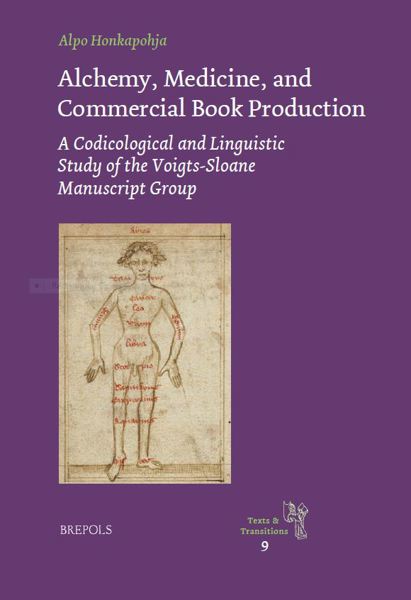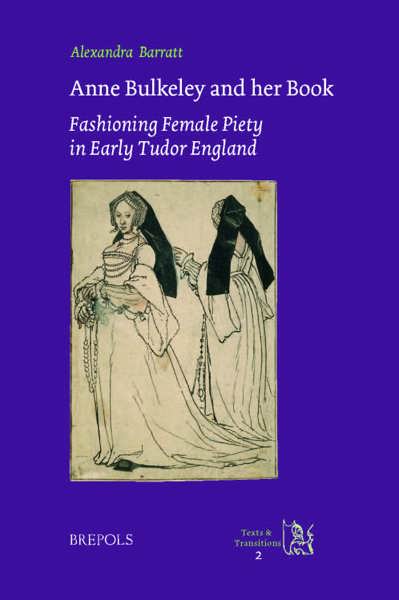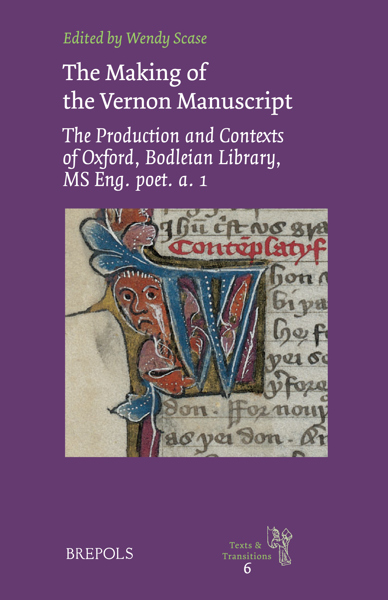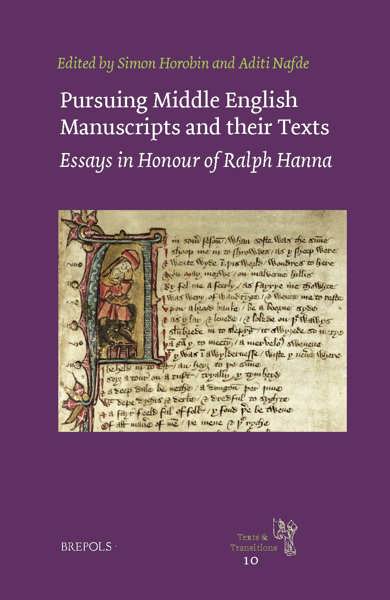
- Pages: 276 p.
- Size:160 x 240 mm
- Illustrations:6 b/w, 4 col.
- Language(s):English, Latin, Middle English
- Publication Year:2009
- € 85,00 EXCL. VAT RETAIL PRICE
- ISBN: 978-2-503-52071-1
- Hardback
- Available
- € 85,00 EXCL. VAT RETAIL PRICE
- ISBN: 978-2-503-56197-4
- E-book
- Available
"Barratt's analysis of Harley MS 434 is sometimes necessarily speculative but she is always judicious in her claims, and her study of this devotional anthology tells us much about the nature of women's piety during a critical period in Early Modern England." (Hilary Maddocks, in Parergon 27.2, 2010, p. 207)
"British Library MS Harley 494 is an interesting and complex manuscript, and it is good to have it made available in such a handsome and well-produced volume. [...] Barratt gives a detailed description of the manuscipt, explores its dating and ownership, argues for its deliberate compilation, and provides a rich historical and literary context for its contents." (J. T. Rhodes, in Journal of the Early Book Society 14, 2011, p. 261)
"Barratt has produced a valuable and interesting analysis of a heretofore little-known manuscript." (K. French, in: The Medieval Review, 10.06.16)
"This book is a useful contribution to the literature on early sixteenth-century religious belief and the impact of the Henrician Reformation, offering an unusual, feminine perspective. It will be essential reading for the study of the Birgittine communities of sixteenth-century England and their influence on devotional practices among the laity. It will also provide a useful exemplar for textual scholars interested in the relationship between print and manuscript culture and how texts were shaped for their intended recipients through the process of transcription and collation." (Jan Broadway, in: Notes and Queries, 62, 4, December 2015)




